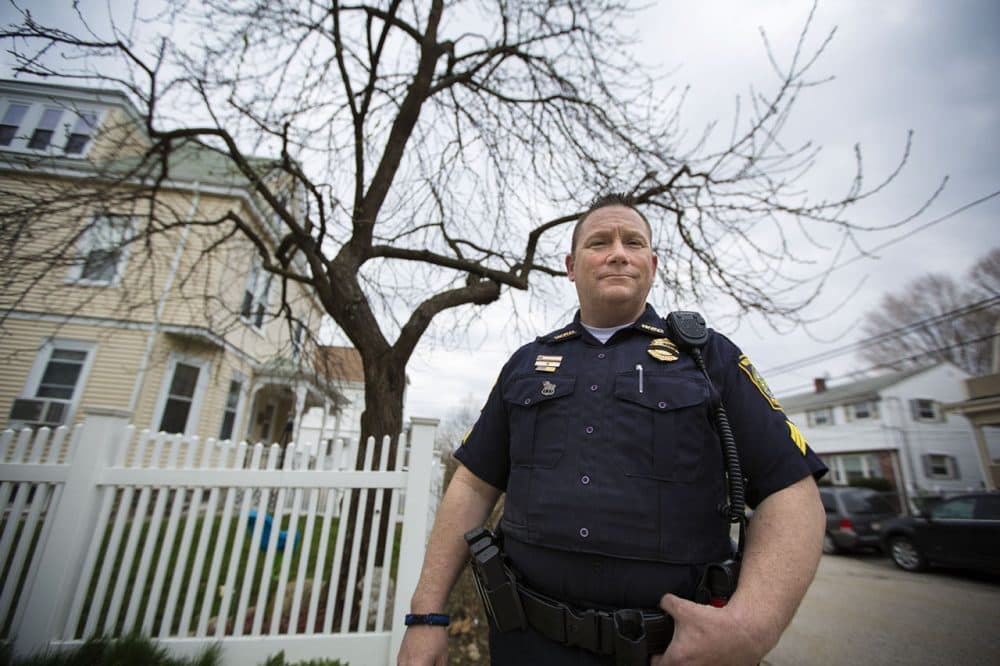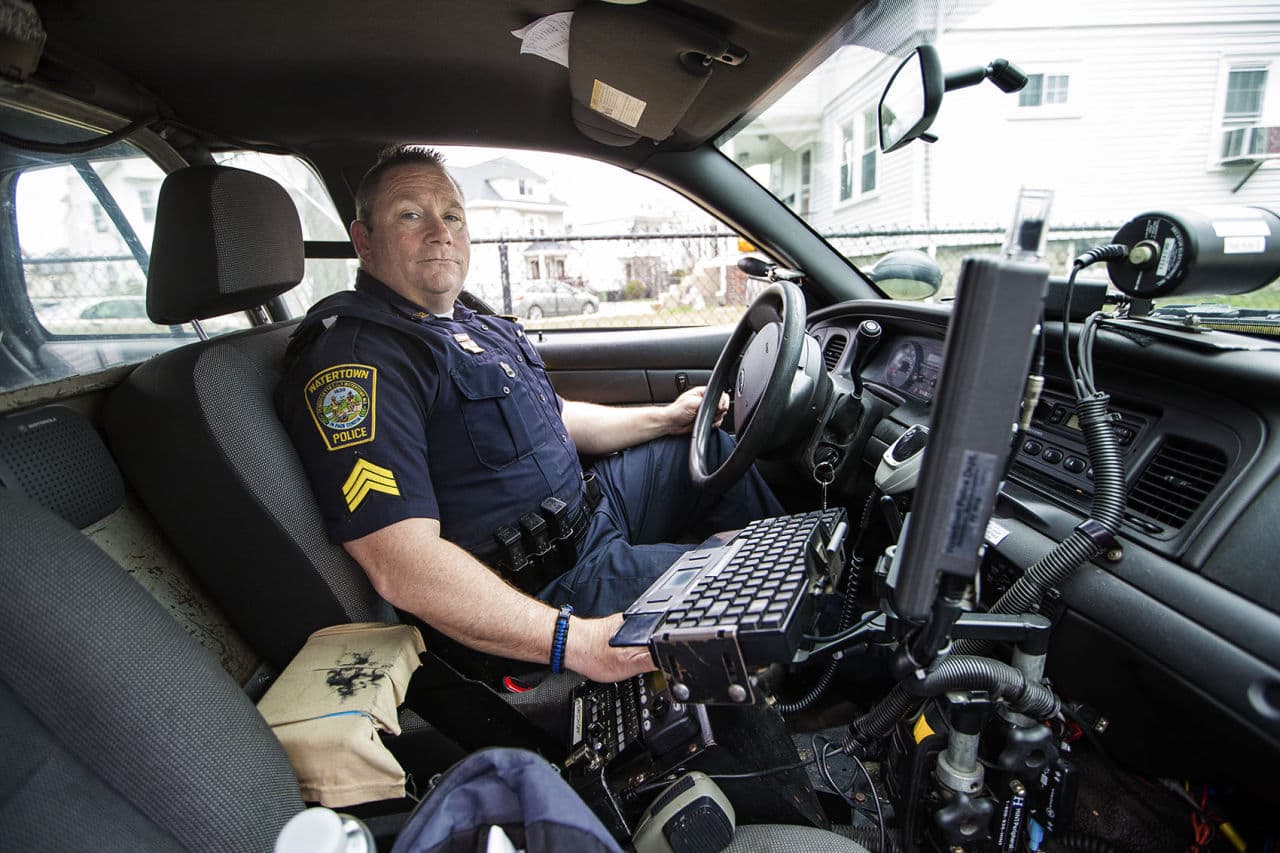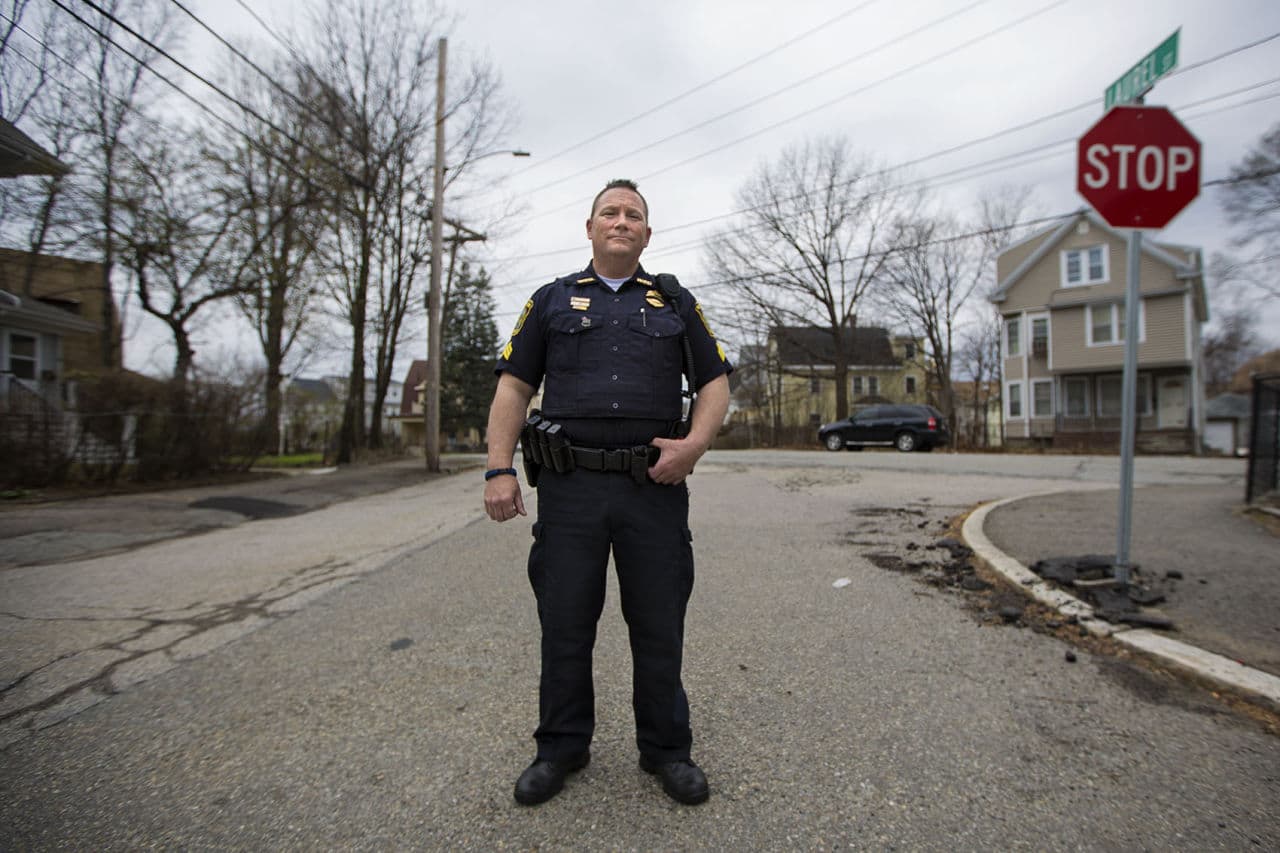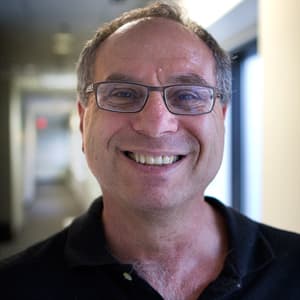Advertisement
3 Years After Marathon Bombing, A Watertown Cop Remembers The Traumatic Events

Friday is the third anniversary of the Boston Marathon bombings, which resulted in four deaths and injured dozens of others.
Many heroes emerged at the marathon that day and in the pursuit of the bombers during the days that followed.
For their actions during the dramatic shootout in Watertown, three police officers here are now the most decorated law enforcement officers in United States history. But awards do little to heal the trauma of that night.
I spent a recent night on patrol with one of the Watertown heroes.
'You Don't Need To Be Strong And Big'
Sgt. John MacLellan is right on time. It's midnight, the start of his shift as patrol supervisor. MacLellan lets me ride along
I squeeze between a police radio and a laptop attached to the dashboard. Mounted between the seats: an AR-15 semiautomatic rifle and a shotgun that shoots less-lethal beanbags.
MacLellan pulls out a small plastic box containing what he calls "miracle juice" — vials of Narcan used to combat opioid overdoses.
"This is probably our most important piece of equipment right now, believe it or not," he told me. "We're using it all the time. I mean, we have officers who have 10 saves — saving 10 lives just on overdoses so it's amazing.
"I love doing my job. I like to sleep right 'til 10:30, my wife wakes me up. I talk to her and watch the top of the news and get dressed and go into work. It just fits me perfectly."

MacLellan was born and raised in Watertown, he joined the police department 28 years ago. For the first 18, he was a motorcycle patrolman. He got his personal fitness certification, and created a Cops & Kids weightlifting program at Watertown High.
"I made some of the best connections with kids, and my whole thing up there was, they think I'm teaching weightlifting, but I'm actually teaching them about life — just sneaking it in and trying to keep them out of trouble and trying to do this and do that."
As a kid, MacLellan admits he got into more than a few scrapes. Now in his 50s he's stocky and broad-shouldered and practices what he calls "verbal judo."
"To be a good cop, you don't need to be strong and big. It helps, because a lot of guys won't screw with you if you're in good shape and they think you're squared away, but if you know how to talk to people, that's what gets you out of fights. It's amazing to have someone say 'All right, sir, turn around, put your hands behind your back,' and they do it."
Advertisement
A Routine Stop
Watertown is four square miles. As the overnight supervisor, MacLellan oversees four officers on patrol.
He drives in and around back alleys, through parks and woods, shining his light, searching shadows, watching, listening.
One of his patrolmen pulls over a driver and calls it in. MacLellan backs him up. It's a routine stop, like what MacLellen had expected on that warm April night three years ago when the dispatcher reported a stolen SUV was heading into Watertown.
"You know it's going to be a couple of kids, we're going to grab them and that's going to be it. We didn't realize it was going to turn into what it did," he tells me, remembering the shootout.
MacLellan backed up Patrolman Joe Reynolds that Friday night in 2013 as two vehicles drove down Laurel Street. The cars stopped. Reynolds hit reverse. A bullet hit MacLellan's headrest, then bombs were thrown at the police officers.
It never happened before in U.S. law enforcement history. None of the Watertown police officers at the scene had ever fired their gun in the line of duty.
Marathon bomber Tamerlan Tsarnaev fired point blank at Sgt. Jeff Pugliese. Pugliese tackled Tsarnaev. MacLellan, thinking Tsarnaev was wearing a suicide vest, jumped on top.
"I keep running it over in my head saying, what if this happened, what if that happened. My guys did a great job, I'm very, very proud of what they did. No one tried to take an extra shot at these guys or kick them when they're down. But I keep thinking, 'What if we were injured?' and how much time they had to set up with all those bombs for the second wave of police officers coming in. If we didn't hold our ground at that first two or three minutes that we were by ourselves, we could have had four or five funerals that night."

Moving Forward
I wonder if he thinks back to that night a lot.
"I'm having issues. I'm having issues with nightmares, but it's being worked on," he says. "I got medication and I'm talking to people and they're helping me. This little blip I'm going through with the nightmares, I'm hoping the doctors can square that all away and end that because it's really affecting me now. I need to get that over with."
He's taking blood pressure medicine for the reoccurring nightmare, where he's frantically trying to make a call but keeps punching in the wrong number. For the past decade, every morning at the end of his shift, MacLellan has gone to Mass at Watertown's St. Patrick's Church.
"I guess God thinks I need it," he says, laughing. "If I'm going every day, he must think I need it. And I really do think it help me with the shooting, you know, being able to process it. You know, we got finished with the shooting at 1 o'clock in the morning and 7:30 that morning I was in church. I said 'I'm going to church,' so they let me go to church before I went to the hospital. It definitely helped me. There's no doubt about it.
"To me, if you live in this town, the town of Watertown, and you're scared, I'm not doing my job and that makes me angry," he says. "I want people to go to bed at night and just like when I was a kid, not have to lock your door — that's the type of town Watertown is and I'd like it to stay that way."
This night was a quite night in Watertown. I live there and went home to bed. MacLellan finished his shift, then went to morning Mass.
This segment aired on April 15, 2016.
